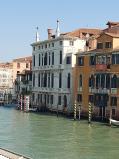Arts Faculty News
Congratulations - Graduation January 2024
Congratulations to all our Faculty of Arts students who are graduating today. We hope you and your families and friends have a wonderful day celebrating your achievements.
Hidden Figures in History
A look back at the hidden figures in History
As we reflect on pivotal moments throughout history, such as the suffragette movement, the Second World War, or the abolition of slavery, there is a tendency to overlook the names and stories of disabled individuals who played a critical role in shaping the course of history.
A researcher from the University of Warwick has investigated the lives of five hidden figures who deserve to be discussed and remembered. Mia Edwards, comments: “More often than not, when we look back through time, we forget to talk about historical figures who are more hidden from the traditional narratives and stories that we might tell about certain events and periods. These people have made remarkable contributions to our world throughout history.
Year 12s experience week in the life of studying at University of Warwick
On Tuesday 25th to Friday 28th July, 91 Year 12 students from across the country to take part in a 4 day, 3 night residential on campus as part of the Sutton Trust Summer SchoolLink opens in a new window. This year we offered students 7 different subject areas, including 2 Arts Faculty focused subject streams, Classics, History of Art, and Film & Television Studies & Politics, Liberal Arts & History.
History of the NHS: BBC CWR Interview
The NHS celebrates its’s 75th anniversary this year. From birth to death, and everything in between, the NHS is there throughout most of our lives. But what do you think was one of the biggest causes of death in the UK before the NHS came into being? Diseases? Childbirth? Leukaemia? BBC CWR Reporter Tom Cooke has been out to meet Professor Roberta Bivins from the Centre for the History of Medicine in Warwick's Department of History, who has been looking at the impact that the NHS has had on UK society and reveals what the biggest killer of people was before we had the NHS.
Why Warwick is investing more than ever in arts and humanities
Recently, we shared more about our new home in Venice, just one of the ways Warwick is reconfirming a deep commitment to the arts.
In this article for the Times Higher Education (THE), Stuart Croft, our Vice-Chancellor, talks about the importance of backing both STEM and the arts, and why Warwick is investing more than ever in arts and humanities.
You can view the article on the THE website (first published 26 June 2023) or read it below.
British Academy/Wolfson Fellowships Award for Dr James Poskett
The British Academy/Wolfson Fellowships Awards will be providing funding to Dr James Poskett, Associate Professor in the History of Science and Technology at the University of Warwick.
Through his research, Dr Poskett will be working on a project titled ‘The Scientific Revolution as Global History, 1200-1800’. He hopes this will provide a major reassessment of the concept of the ‘scientific revolution’. In doing so, the project will build on Dr Poskett’s recent book ‘Horizons: A Global History of Science’.
Warwick with Venice: New Venue Opening Event 22 May

The University of Warwick is proud of its long-standing connections with Venice. Our History and History of Art departments have collectively taught students in Venice for well over 50 years. From 2007, the University had a base in the Cannaregio district of the city. Other departments, including Italian Studies, WBS, Global Sustainable Development, Economics, WMG, and the Centre for the Study of the Renaissance, also used this space to deliver short courses and host academic conferences.
Circumstances necessitated the search for a new premises. After an interim period during which we were hosted by Ca’ Foscari, a new location was identified: the Palazzo Giustinian Lolin.
The opening event for the new venue was held on the 22nd May followed by a series of bi-lateral meetings between academics from Warwick and their counterparts from Ca' Foscari University on the 23rd May.
Quickfire questions with PhD Scholarship student, Dr Kimberley Thomas
We caught up with Dr Kimberley Thomas (BA History 2010, MA History 2012, PhD Caribbean Studies, 2020) to talk about her time at Warwick, ahead of her return to deliver a Caribbean seminar series.
How the Past Informs the Present
Features writer and editor for The Boar, Vice President of Warwick HisSoc and Deputy Editor of Warwick Politics Society’s Perspectives, alumna Celia Bergin (BA History and Politics, 2022) certainly made the most of her time at Warwick. Graduating with a first-class degree, she jumped straight into the world of journalism. Now working as a reporter for Bloomberg News, Celia reflects on how these experiences helped her get there.
Let Them Eat Quiche: A Culinary History of Coronation Food
In conversation with The Independent Professor Rebecca Earle, from the University of Warwick said. "This is a genuine innovation. Historically, members of the public were not urged to celebrate coronations by inventing new dishes, or by recreating the menus of the official banquets. Home cooks hoping to replicate the côtelettes de bécassines à la Souvaroff served at Edward VII’s 1902 coronation would have confronted a complex recipe involving fillets of snipe, pâté, brandy and truffles,” she says.
“The method was later described in royal chef Gabriel Tschumi’s cookbook [Royal Chef: Recollections of life in royal households from Queen Victoria to Queen Mary], but it was unlikely to inspire any but the most intrepid.
“Today’s efforts to encourage us all to join in by baking a coronation quiche reflect the enormous popularity of cooking as a leisure activity, as well as the monarchy’s attempts to repackage themselves for the 21st century.”

